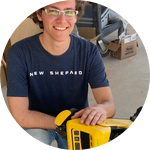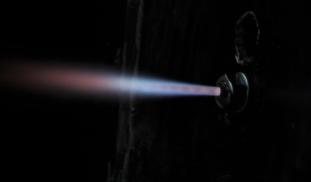Please wait...
About This Project
Nozzle flow separation is a condition where exhaust gases in a rocket nozzle cause severe pressure fluctuations that can damage a spacecraft. The Schmucker Criterion provides insight as to where this flow separation occurs, but it tends to become inaccurate at smaller scales. Using a small scale composite combustion chamber, we want to use vibration data and nozzle extensions to determine exactly what nozzle expansion ratio causes damage to our carbon fiber material during test.




